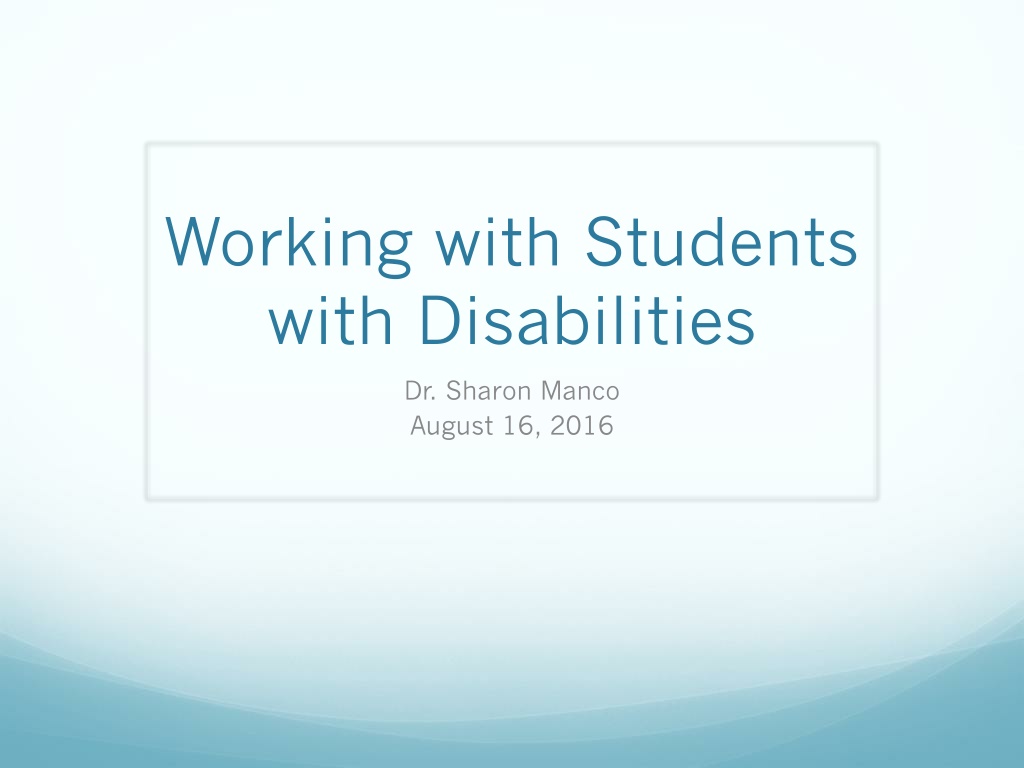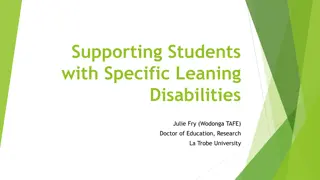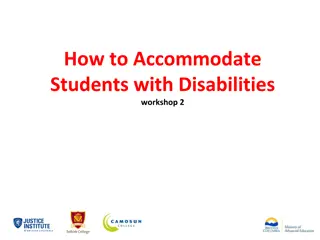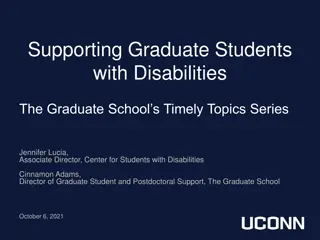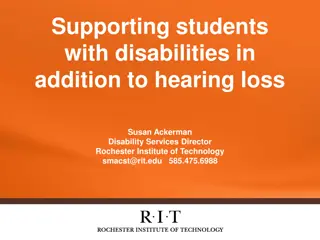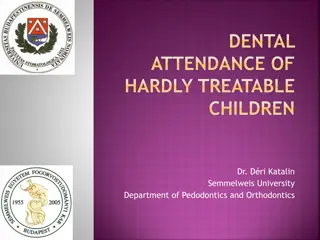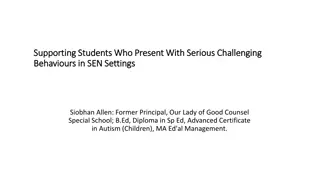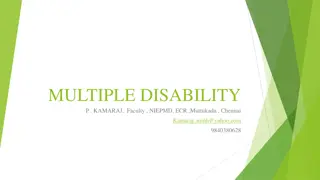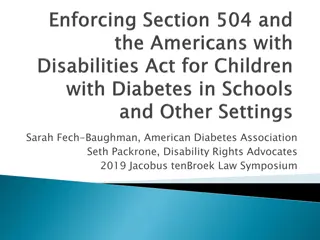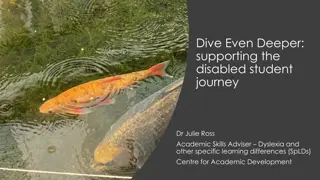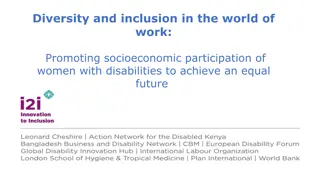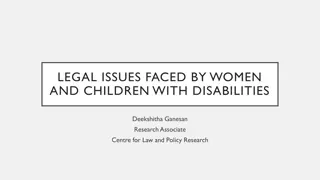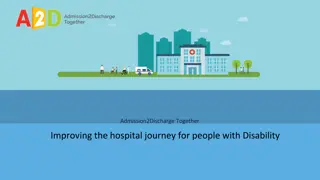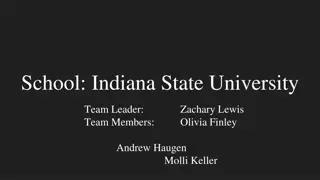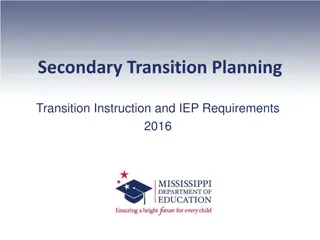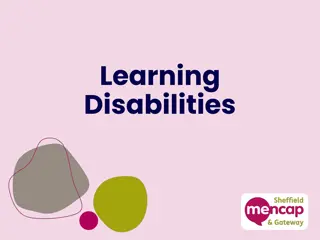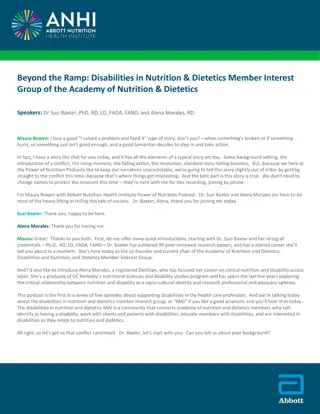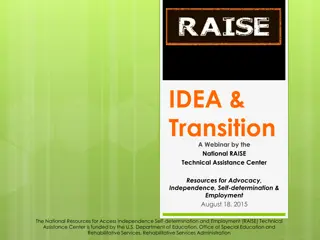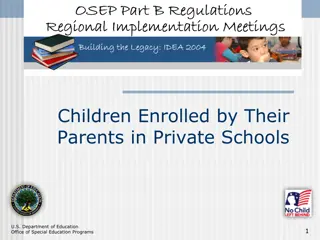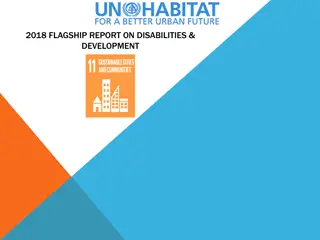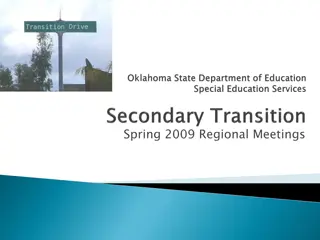Supporting Students with Disabilities in Educational Settings
Understanding the definitions and regulations surrounding disabilities in educational settings is crucial. This includes accommodations to ensure equal access to programs and activities, provision of auxiliary aids and services, and reasonable modifications. Awareness of the ADA definition of disability and the Rehabilitation Act of 1973 is essential for creating an inclusive environment for faculty, staff, and students with disabilities.
Download Presentation

Please find below an Image/Link to download the presentation.
The content on the website is provided AS IS for your information and personal use only. It may not be sold, licensed, or shared on other websites without obtaining consent from the author. Download presentation by click this link. If you encounter any issues during the download, it is possible that the publisher has removed the file from their server.
E N D
Presentation Transcript
Working with Students with Disabilities Dr. Sharon Manco August 16, 2016
ADA Definition of Disability http://www.eeoc.gov/eeoc/foia/letters/2000/ada_d efinition.html A person has a disability within the meaning of the ADA if s/he (1) has a physical or mental impairment that substantially limits a major life activity; (2) has a record of a substantially limiting impairment; or (3) is regarded by an employer as having a substantially limiting impairment. 42 U.S.C. 12102(2). An "impairment" is a physical or mental or psychological disorder. 29 C.F .R. 1630.2(h). Major life activities include breathing, walking, learning, seeing, and hearing. An impairment is considered substantially limiting if it prevents an individual from performing a major life activity, or significantly restricts the individual's ability to perform the activity as compared with the average person in the general population.
Rehabilitation Act of 1973 from: www.equity.psu.edu/student-disability-resources No otherwise qualified person with a disability in the United States shall, solely on the basis of a disability, be denied access to, or the benefits of, or be subjected to discrimination under any program or activity provided by an institution receiving federal financial assistance. We must make reasonable and academic adjustments and accommodations that allow faculty/students with disabilities full participation in the same programs and activities available to faculty/students without disabilities.
Requirements 1. Institutions must ensure accessibility of programs and activities to faculty, staff and students with disabilities. (e.g. same options for selecting courses, and majors, removal of architectural barriers, etc.)
2. Faculty, staff, and students with disabilities must be provided with auxiliary aids and services in their academic activities Interpreters for the deaf or technology to present oral material visually Audio texts or text-to-voice software, or readers for the visually impaired Classroom equipment for use by those with manual impairments (automatic faucets, doors, etc.)
3. Reasonable modifications in nonessential academic requirements - extension of time for tests, degree completion - substitution of courses in degree requirements (foreign language) - permission to record lectures - use of service animals on campus
Modifications need not be made for academic requirements demonstrated to be essential to the program being pursued or to any directly related licensing requirements
Learning Disabilities with reading http://www.tutorworkshop.org/affectiveskills/exerci ses/affectiveex3.htm How did it feel? What would help?
Disability of Written Expression Write a paragraph about the most fascinating, exciting thing you did this summer. BUT . . . How did that feel? Did you find it difficult? What might have helped?
Attention Deficit/Hyperactivity Disorder https://www.youtube.com/watch?v=xfo1tZ95Ypk How did that feel? Did you find it difficult? What might have helped?
Hearing Loss Spelling Test: Sound Hearing, S. Harold Collins, Garlic Press, 2009 How did that feel? Did you find it difficult? Did you give up or quit? What might have helped?
